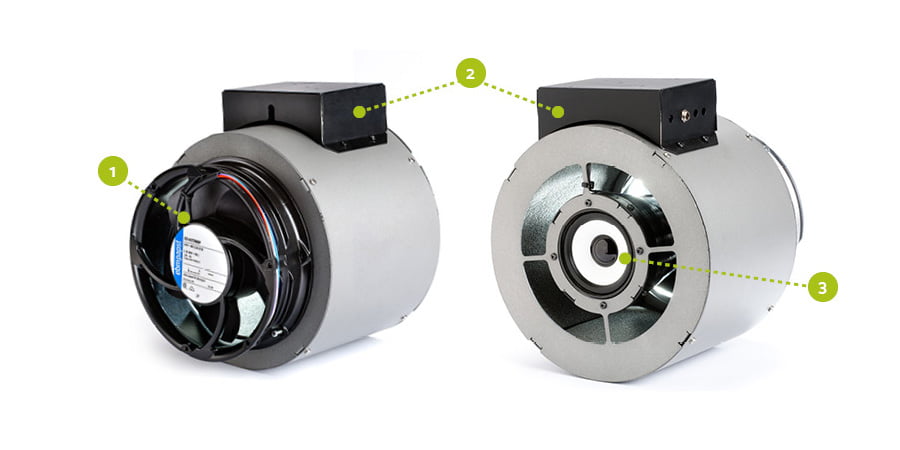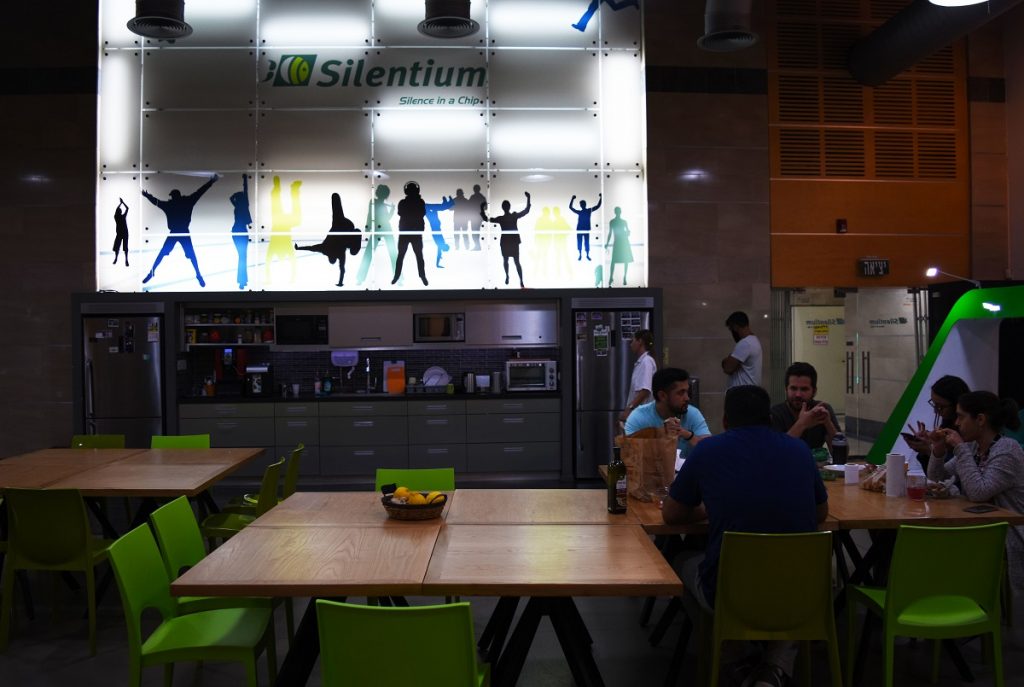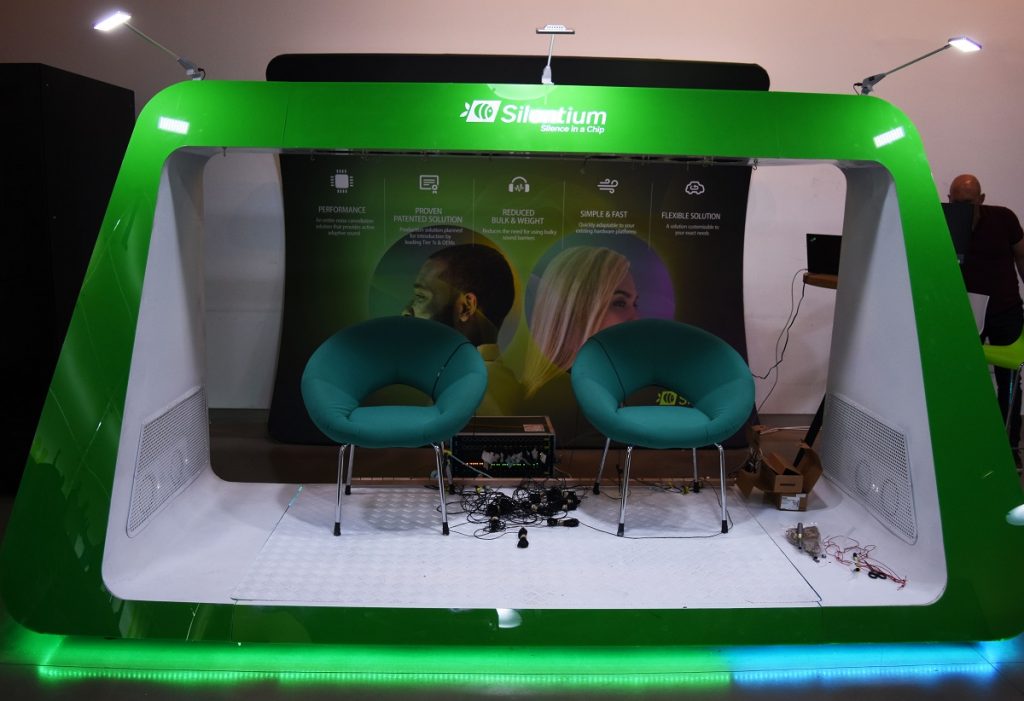A little peace and quiet can be pretty hard to come by, especially if you live in a city. Even if you manage to tune out the cacophony of ear-splitting horns, rumbling cars, and endless construction sounds right outside your window, inside the oasis of your home, your air-conditioner may be blasting loudly or the oven fan may be whirring aggressively. Not to mention the steady beeps, blips, and alarms of laptops, cellphones and other smart devices that are now part of the background noise in our technologically advanced world.
Noise pollution can be detrimental to physical and mental health, as well as quality of life.
Silentium, an Israeli company founded by engineer and entrepreneur Joseph Barath nearly two decades ago, promises to fix these noise issues by “treating noise as any sound that is unwanted,” current CEO Yoel Noar tells NoCamels in a phone interview.
“Noise is a [form of] pollution that damages our health and people are not educated about noise and its effects,” he explains.
SEE ALSO: No Pedal To Play Metal: Israeli Startup Rocks Music World With Wireless Sound Effects Touchpad
The company developed Active Noise Cancelation (ANC) technology that uses a microphone to identify the wavelength of the noise, and then produces an equal, but opposite soundwave that counters the noise soundwave to cancel it out. Simply, ANC identifies the noise soundwave, mimics it, and mirrors it.
Noar says Silentium has the “most advanced noise-canceling” technology and that the company “opened the market for broadband Active Noise Cancelation.”
Silentium’s first product, the AcoustiRACK, is a cabinet mount that solves noise pollution in a working environment by providing a countering effect to loud servers, fans, heavy machinery, and other noise-making devices and objects. It became commercially available in 2005, after which Silentium expanded to other markets. After all, the technology can be used in a multitude of scenarios and locations.
Silentium now works with different industries, creating solutions for home appliances, automobiles, airplanes transportation spaces, and industrial factories. Its engineers work with Tier 1 companies to implement the company’s silencing software in the development of a finished product, Silentium says.
For instance, Silentium licensed its software to Electrolux, a Swedish multinational household products company.
The company’s S-Cube Development Kit (SCDK), a proprietary noise-canceling technology that extends the low-frequency range of the noise reduction up to 1800Hz, “can be used to reduce noise for servers and networking equipment, HVAC equipment for homes and for use in automotives,” Silentium describes on its site.

The company also works on-demand with clients looking to reduce and control noise emitted from a given product, and also offers a “full turnkey solution” encompassing software and hardware to build customized noise-reduced products as per requirements. Silentium says its tech can make products up to 90 percent less noisy.
Sign up for our free weekly newsletter
Subscribe“We offer software to help product makers make their product better,” Noar expounds.
Silentium has found the automotive industry the easiest to enter “because that market is educated on sound,” Naor tells NoCamels, and therefore has been recently focusing on producing ANC technology for cars to reduce road and engine noise, dubbed Quiet Bubble Active Road Noise Cancellation (ARNC).
“Basically I can tell you that we are working with all the car makers today. You name it, and we probably work with them,” Naor says, explaining that this is the case with most non-American manufacturers.
As for “the rest of the world, though we are working with almost everyone,” he reveals.
Perhaps Silentium’s most intriguing offering is the Quiet Bubbles (QB), built on the Quiet Bubble Development Kit (QBDt) which allows users to create their own “quiet zones.” The kit is based on proprietary algorithms that work to actively reduce spatial, broadband and adaptive sound, giving users the ability to essentially have their own ANC system. Quiet Bubbles are effective in cars, trains, busy airport terminals, and airports.

Earlier this year, Silentium debuted its Personal Sound Bubble solution (PSB), which allows people sitting right next to each other – in a car, for example – to listen to different music, while also engaging in a conversation. No more bickering with friends and spouses (or relatives or even strangers) about whether to play Cardi B or Justin Beiber or pleading with four-year-olds against a third round of “Baby Shark.”
A proof-of-design model for PSB was shown this summer in Tel Aviv at the Ecomotion event, where Silentium demonstrated the effectiveness of its tech. PSB functions through a series of speakers, some which produce music and others which produce soundwaves to counter that music. Like headphones, but without headphones.
Based in Ness Ziona, Silentium currently has about 55 employees, with international engineers and business developers in China, Germany, South Korea, Britain, and the US.
For a photo essay on Silentium by the writer, see below.
Related posts

Editors’ & Readers’ Choice: 10 Favorite NoCamels Articles

Forward Facing: What Does The Future Hold For Israeli High-Tech?

Impact Innovation: Israeli Startups That Could Shape Our Future





Facebook comments